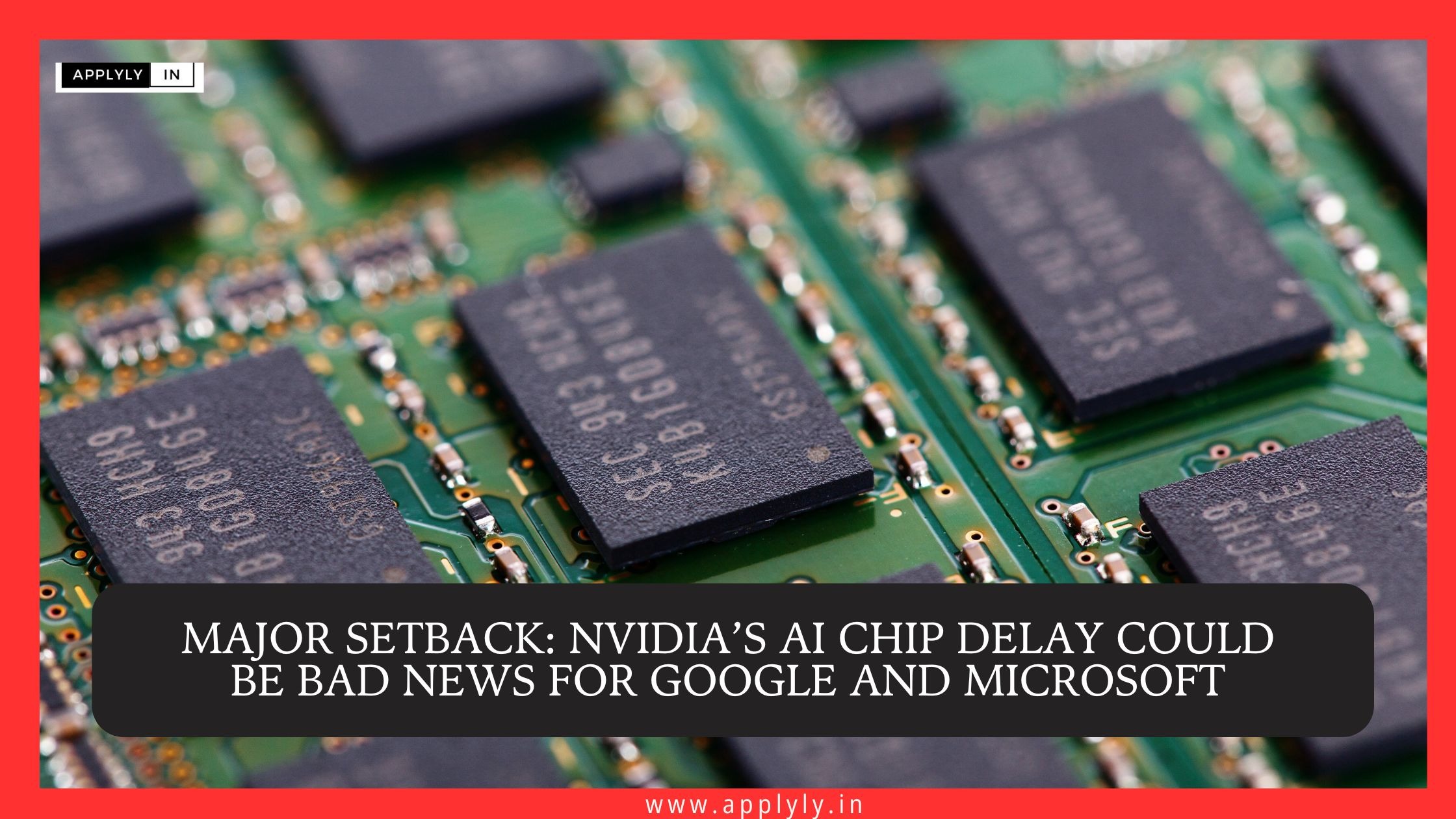Nvidia’s AI Delay Could Be Bad News for Google and Microsoft
Introduction
Nvidia, a leader in AI technology, is facing delays in producing its new AI chips. This delay could have major implications for tech giants like Google and Microsoft. Both companies rely on Nvidia’s chips for their AI-driven services. Nvidia’s AI chip delay could be bad news for Google and Microsoft, affecting their development timelines and future projects. This blog will explore the reasons for the delay, its impact, and the broader implications for the tech industry.
Understanding the Nvidia AI Chip Delay
Nvidia’s Blackwell chip series was highly anticipated. These chips were expected to follow the successful Grace Hopper Superchip. The delay stems from design flaws and technical challenges. Designing AI chips is complex and prone to unexpected issues. Nvidia’s delay could push the launch back by several months. This is significant because Google and Microsoft heavily rely on these chips.
The Impact on Google
Google uses Nvidia’s AI chips for many applications. These include data analysis, search algorithms, and user interface improvements. Nvidia’s AI chip delay could be bad news for Google because it might disrupt their plans to launch new AI features. Google has invested billions in AI infrastructure. Any delay in chip production could hinder Google’s competitive edge in the AI market.
Google’s AI Projects at Risk
Google’s various AI projects could face delays. These projects include advancements in machine learning and natural language processing. Google’s AI capabilities power many of its services, like Google Assistant and search algorithms. Delays in chip production could slow down the development of these services. This might affect Google’s ability to innovate and stay ahead in the AI race.
The Impact on Microsoft
Microsoft also relies on Nvidia’s AI chips. These chips support Microsoft’s cloud-based services, like Azure AI. Nvidia’s AI chip delay could be bad news for Microsoft, impacting their deployment of new AI technologies. Microsoft uses these chips for AI-driven applications in cloud computing and enterprise solutions.
Microsoft’s AI Initiatives
Microsoft has ambitious AI initiatives. These include improving its cloud services and integrating AI into business solutions. The delay in chip production could slow down these initiatives. This might affect Microsoft’s market position and its ability to deliver new AI capabilities to customers.
Financial Impact on Nvidia
Despite the delay, Nvidia’s market performance remains strong. Nvidia’s share price recently surged, adding billions to its market value. Investors still have confidence in Nvidia’s long-term potential. However, the delay highlights the challenges in AI chip production and the impact on major customers like Google and Microsoft.
Broader Implications for the Tech Industry
Nvidia’s AI chip delay has broader implications. It underscores the dependency of tech giants on specific hardware suppliers. A shortage of AI chips could push companies to seek alternative suppliers or invest in in-house chip development. This could lead to diversification in the AI hardware market.
Diversification of AI Hardware Suppliers
The delay may prompt companies to diversify their AI hardware suppliers. Relying on one supplier poses risks. Companies might look for other AI chip manufacturers to ensure a steady supply of hardware. This diversification could reduce vulnerabilities and foster innovation in AI hardware technology.
Investment in In-House Chip Development
Tech giants might increase investment in in-house chip development. Developing proprietary chips gives companies more control over production and reduces dependency on external suppliers. Google and Microsoft could follow the footsteps of Apple, which has successfully developed its own chips.
Future of AI Chip Technology
The delay in Nvidia’s AI chip production is a challenge but also an opportunity. It drives innovation in AI chip technology. Companies will continue to push the boundaries of what’s possible in AI hardware. The future of AI chip technology looks promising with continuous improvements and new breakthroughs.
Nvidia’s Response and Future Plans
Nvidia is working hard to resolve the issues causing the delay. A spokesperson stated that demand for the existing Hopper chip remains strong. Broad sampling of the Blackwell chips has started, and production is set to ramp up soon. Nvidia aims to overcome the challenges and meet the high demand for its advanced AI chips.
Conclusion
Nvidia’s AI chip delay could be bad news for Google and Microsoft. It might disrupt their AI development timelines and affect their competitive edge. The delay also highlights the need for diversifying hardware suppliers and investing in in-house chip development. Despite the setback, Nvidia remains a strong player in the AI market. The tech industry will watch closely as Nvidia works to resolve these issues and deliver the highly anticipated Blackwell chips. The future of AI technology depends on overcoming such challenges and driving innovation forward.
You can read more information related to Startup advise, AI and startup news here.
Thanks
References:
TechCrunch. “Nvidia Faces Delays in AI Chip Production.”
Forbes. “Impact of AI Chip Delays on Tech Giants.”
CNBC. “Nvidia’s Market Performance Amid Chip Delay
Reuters. “Broader Implications of Nvidia’s AI Chip Delay.”
The Information. “Challenges in AI Chip Design and Production.”
For more updates related to the Startup advise, startup stories and AI, connect with us.
Thanks !!







One Comment